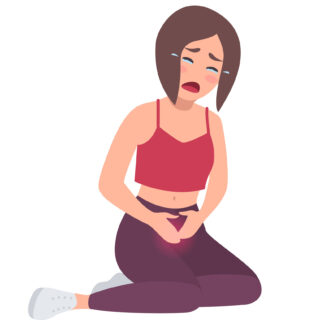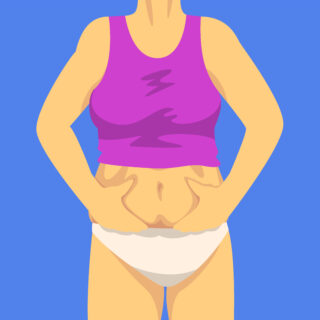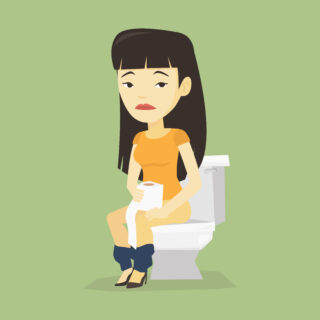Vaginal Prolapse Treatment in Indore
Make an Appointment
Online Schedule
Dr. Namrata Kachhara is a trusted name in vaginal prolapse treatment in Indore, offering advanced and compassionate care to women facing this challenging condition. With over 35 years of experience in gynecology, she specializes in diagnosing and treating vaginal prolapse, helping women regain their health, confidence, and quality of life.
Her expertise in minimally invasive surgical techniques, combined with a patient-first approach, ensures effective and lasting relief. Women across Indore trust Dr. Kachhara for personalized treatment plans tailored to their unique needs.
Understanding Vaginal Prolapse
Vaginal prolapse occurs when the muscles and ligaments supporting the pelvic organs weaken, causing the bladder, uterus, or rectum to drop and press against the vaginal walls. It is a common condition, especially among women who have experienced childbirth, menopause, or aging-related muscle weakness.
Although vaginal prolapse can cause discomfort, embarrassment, or inconvenience, it is treatable. With timely medical intervention, you can restore normal pelvic function and improve your overall well-being.
Symptoms of Vaginal Prolapse
- 01. Pelvic Pressure
- 02. Bulging Tissue
- 03. Discomfort During Activities
- 04. Urinary Problems
- 05. Bowel Issues
- 06. Discomfort During Intercourse
A feeling of heaviness or pressure in the pelvic area.

A visible or palpable bulge from the vagina.

Pain or discomfort during walking, exercising, or lifting heavy objects.

Difficulty urinating, frequent urination, or incomplete bladder emptying.

Constipation or difficulty passing stool.

Pain or irritation during sexual activity.

If you notice any of these symptoms, consult Dr. Namrata Kachhara for expert advice on vaginal prolapse treatment in Indore.
Why Choose Dr. Namrata Kachhara for Vaginal Prolapse Treatment?
- Decades of Expertise
Dr. Kachhara has over 35 years of experience in treating gynecological conditions, including complex cases of vaginal prolapse.
- Advanced Diagnostic Tools
She uses state-of-the-art diagnostic techniques to assess the severity of the prolapse and determine the best course of action.
- Minimally Invasive Surgery
Dr. Kachhara specializes in laparoscopic and robotic-assisted surgeries for prolapse repair, ensuring faster recovery and minimal discomfort.
- Personalized Care Plans
Each patient receives a tailored treatment plan based on their symptoms, lifestyle, and overall health.
- Holistic Approach to Recovery
Her care extends beyond treatment, focusing on pelvic floor rehabilitation and lifestyle modifications to prevent recurrence.
Treatment Options for Vaginal Prolapse
Pelvic Floor Exercises
Strengthening the pelvic muscles through targeted exercises like Kegels can help in mild cases of vaginal prolapse.
Pelvic Floor Rehabilitation
Comprehensive rehabilitation programs help strengthen the pelvic muscles post-treatment, reducing the risk of recurrence.
Minimally Invasive Surgery
For moderate to severe prolapse, Dr. Kachhara performs surgical repairs using minimally invasive techniques like laparoscopic or robotic-assisted procedures.
Pessary Devices
A vaginal pessary, a medical device inserted into the vagina, provides support to the pelvic organs and reduces discomfort.
Hormone Therapy
For postmenopausal women, estrogen therapy can improve vaginal tissue strength and reduce symptoms.
Regain Confidence and Comfort
Vaginal prolapse can disrupt your daily life, but it doesn’t have to. With Dr. Namrata Kachhara’s advanced care and personalized treatment, you can regain control and live without discomfort.
Book your consultation today with Dr. Namrata Kachhara, the trusted name for vaginal prolapse treatment in Indore, takes the first step towards better health.
FAQs About Vaginal Prolapse Treatment
Vaginal prolapse can occur due to childbirth, menopause, aging, chronic coughing, or heavy lifting, which weaken pelvic floor muscles.
Yes, minimally invasive procedures are safe and have a high success rate with faster recovery times.
With proper care, including pelvic floor exercises and lifestyle adjustments, the chances of recurrence are minimal.
Mild cases can improve with pelvic exercises, lifestyle changes, or pessary devices. Surgery is recommended for severe cases.
Most patients can resume normal activities within 4–6 weeks after minimally invasive surgery.
